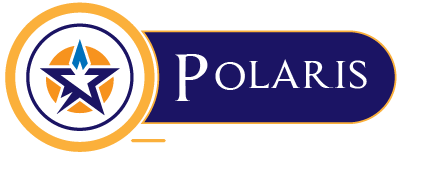Chemistry is biology! Did you know that genetically altering microorganisms can make them into tiny factories producing biofuel? Or is it possible to modify Baker’s yeast to produce the antimalarial medicine artemisinin, typically obtained from the sweet wormwood plant? These are some examples of the advanced genetic engineering goods made available by synthetic biology.
The growing number of applications for therapeutic genome editing, multiplexed diagnostics, and cellular recording will raise the demand for synthetic biology. The global synthetic biology market was valued at USD 13.07 billion in 2022 and is expected to grow to USD 71.51 billion at a CAGR of 18.5% during the forecast period 2032.
What is Synthetic Biology?
Synthetic biology is a specialization that enables the creation of controllable circuits, networks, and metabolic and regulatory pathways. Additionally, it makes it possible to develop new enzymes, pathways, and complete cell systems. As a result, synthetic biology enables the creation of new organisms engineered to create useful products like pharmaceuticals, chemicals, fuels, and materials that do not rely on non-renewable fossil fuels.
Furthermore, bacterial, human, viral, and plant cells have all been manipulated using synthetic biology to create substances or change biological processes that benefit human health.
What are the Factors Driving Demand for Synthetic Biology?
Synthetic biology combines biology, engineering, and computer science ideas to develop new biological systems and alter existing ones. Several important variables, such as the advancement of gene editing technologies, the rising interest in alternative energy sources, and the growing importance of precision medicine, drive the synthetic biology market growth.
Moreover, the demand for renewable energy sources is a key driver driving the synthetic biology industry. The need for alternative energy sources like biofuels is rising due to worries about climate change and the depletion of traditional energy sources. The ability to create microbes to make biofuels more effectively and sustainably using synthetic biology has attracted more funding and interest.
Additionally, the synthetic biology market demand is also being driven by precision medicine, which has the potential to produce personalized illness treatments. Synthetic biology can assist in developing more effective and tailored therapeutics with fewer adverse effects by creating biological systems to target particular cells or tissues.
The Oligonucleotide/Oligo Sector Dominated the Market
Oligonucleotides are the primary component in many molecular and synthetic biology applications. The primary market drivers are the growing usage of targeted NGS, mutagenesis research, DNA computing, and CRISPR gene editing. One cutting-edge and unique tool for genetic analysis is OligoMix. It generates many oligonucleotide sequences all at once. For the same, the cost is less than 0.8 cents per base.
Healthcare Holds the Significant Revenue Share
Cancer cells, pathogens, and medications can all be quickly and non-invasively identified using synthetic biology-based diagnostics. Researchers use rational engineering techniques to design innovative, dynamic biosensing systems with a CPU, sensor, and reporter. An increase in neurological disorders like multiple sclerosis is also fueling the synthetic biology market.
What makes North America the Largest Market for Synthetic Biology?
Due to increased government assistance, favorable laws, and rising private company investment, North America dominated the synthetic biology market in 2022. The U.S. largely concentrates on research in discovery and drug screening, proteomics, and genomic structure prediction to support the growth of the synthetic biology sector.
Moreover, the Asia Pacific region’s synthetic biology industry is also anticipated to expand at the fastest rate, propelled by factors like rising investments in APAC countries, developing partnerships & funding in the Chinese market, and expanding collaborations in the field.
Recent Developments in the Market
- In January 2021, Novozymes introduced Frontia GlutenEx, a product designed to help wheat makers recover more gluten protein while using less energy.
- In February 2021, Merck and BioNTech (Germany) teamed up to provide the lipids needed for the Pfizer-BioNTech COVID-19 vaccine (BNT162b2).
In Conclusion
The demand for synthetic biology will increase due to the expanding range of applications for multiplexed diagnostics & cellular recording, and therapeutic genome editing. Applying organisms and goods created by artificial biology techniques in other industries, such as energy and chemicals, will likely impact the synthetic biology market growth.

